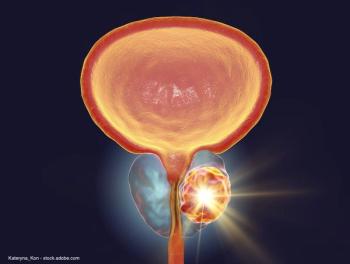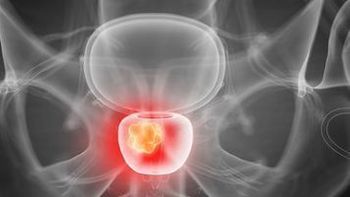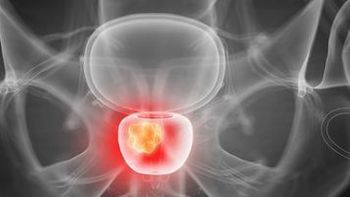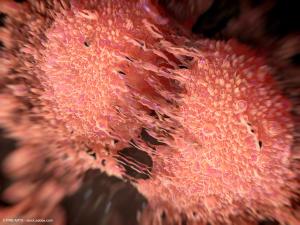
“These findings support the use of 18F-PSMA-1007 PET/CT in the preoperative workflow of intermediate-and high-risk tumors,” said Nikhile Mookerji, MD.

“These findings support the use of 18F-PSMA-1007 PET/CT in the preoperative workflow of intermediate-and high-risk tumors,” said Nikhile Mookerji, MD.

Shilpa Gupta, MD, shares her expert insight on the evolving treatment paradigm for patients with muscle-invasive bladder cancer, along with obstacles that must be overcome to further advance the field.

The median overall survival in renal cell carcinoma patients was similar, regardless of whether or not patients received a break from treatment.

Patients with renal cell carcinoma who had progressive disease or stable disease after frontline nivolumab had a substantial treatment-free survival period following salvage immunotherapy with nivolumab plus ipilimumab.

Cell-free DNA–based next-generation sequencing profiling resulted in low detection/concordance in clear cell renal cell carcinoma.

“The study was stopped for futility after the second prespecified interim analysis based on guidance from the external data monitoring committee,” said Evan Y. Yu, MD.

In the study, certain pathologic variants were associated with higher incidence of prostate cancer vs non-carrier controls.

Benign prostatic hyperplasia (BPH) was defined as prostate size ≥ 40 g, an International Prostate Symptom Index Score ≥ 8, or using BPH medications.

Adding the PD-1 inhibitor to docetaxel led to a trend toward modest improvement in survival versus docetaxel alone; however, the results did not meet the trial’s threshold for statistical significance.

The focus of the analysis was to determine the HRQOL of patients who were enrolled on the phase 3 KEYNOTE-426 trial.

External beam radiotherapy plus or minus brachytherapy yielded lower rates of distant metastasis.

A recent cohort study assessed ADT durations for both patients receiving external beam radiotherapy (EBRT) alone and those treated with EBRT plus a brachytherapy boost.

A recent study showed the capacity to classify metastatic castration-resistant prostate tumors as luminal and basal, and examined the personalized medicine potential unlocked by identifying these subtypes.

"The SPOTLIGHT study [of 18F-rhPSMA-7.3] highlights what I believe is a paradigm shift with its multidisciplinary [collaboration] in prostate cancer," said Mark Fleming, MD.

Almost half of individuals surveyed were unaware of the link between smoking and bladder cancer.

Patients achieving RC-pentafecta had less blood loss, shorter hospital stays, and lower perioperative mortality.

Phillip S. Low, PhD, led research that was critical to the development of targeted radioligand therapy 177Lu-PSMA-617 for the treatment of patients with prostate cancer.

The study found that 1 in 10 men with localized prostate cancer experienced treatment-related regret.

Gennady Bratslavsky, MD highlighted studies examining (neo)adjuvant immunotherapy in the setting of nephrectomy for locally advanced disease, such as the PROSPER (NCT03055013) and KEYNOTE-564 (NCT03142334) trials.

The investigators reported that independent risk factors for depression included younger age, being a current smoker, previous alcohol use, and poor performance status.

The phase 3b PRESIDE trial showed that continuing enzalutamide in combination with docetaxel and prednisolone delayed disease progression in patients with metastatic castration-resistant prostate cancer who progressed on enzalutamide alone.

Investigators reported that utilizing dosing interruptions or modifications for lenvatinib is an important part of managing toxicities.

Following a high intensity interval training exercise regimen was associated with decreased PSA levels in men undergoing active surveillance for prostate cancer.

In a news release, Checkmate -274 primary investigator Matthew Galsky, MD, hailed the approval as a “major milestone for patients who have undergone major surgery to remove the bladder or parts of the urinary tract and are in need of additional treatment approaches that can help reduce the risk of their UC returning."

The published data are from the pivotal CheckMate 274 trial and are currently being reviewed by the FDA for a potential approval of nivolumab in this setting.

A recent analysis suggested that nomograms could predict outcomes with the PSMA-targeted agent Lutetium-177–PSMA-617 in patients with metastatic castration-resistant prostate cancer.

Screening rates rebounded across most tumor types in late 2020; however, racial and economic disparities persisted.

Published: August 20th 2021 | Updated:

Published: May 3rd 2024 | Updated: